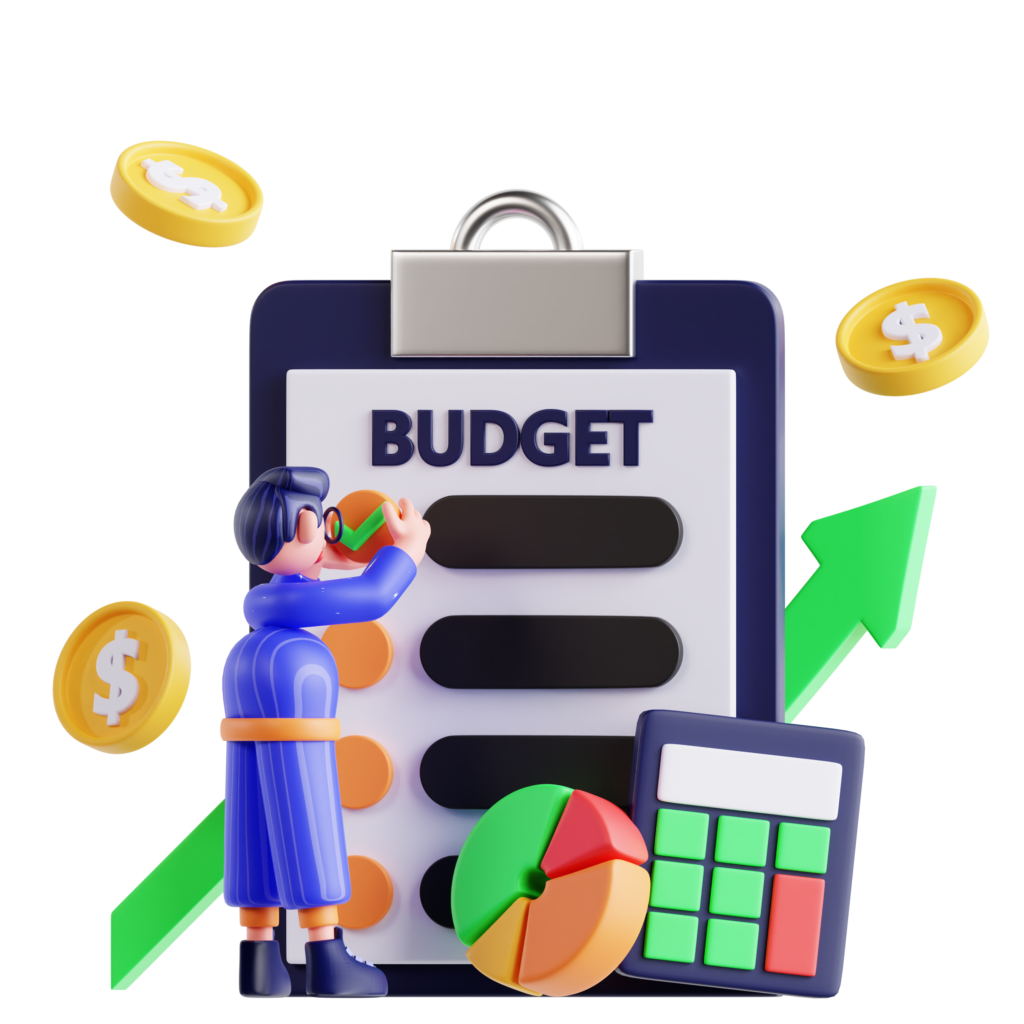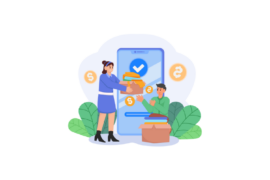Imagine this scenario: A tiny charity focused on helping underprivileged kids in the local area stands on the brink of closure. Why? Because of their inability to successfully handle and retain benefactors. It’s an unfortunate situation that transpires all too frequently, highlighting the uphill battle petite nonprofits encounter regarding benefactor administration.
Attaining and keeping benefactors is the lifeblood of any philanthropic group, irrespective of dimensions. For small nonprofits specifically, the competent administration of benefactors isn’t just a matter of choice; it’s a matter of survival. These organizations regularly work with confined funds, a dedicated but modest team, and an unbending commitment to their causes. However, the financial restrictions they experience can render sustaining their mission a demanding endeavor.
The Importance of Donor Management
Donor management encompasses the diverse approaches, ongoing operations, and technological aids that nonprofit groups leverage to pinpoint, involve, preserve, and care for their benefactors. It extends beyond merely accumulating donations and involves constructing enduring relationships with persons and bodies who embrace the nonprofit’s objective.
Benefits
A proficient donor management provides a wealth of advantages, particularly crucial for small nonprofits:
Enhanced Retention: Donor management ensures your backers remain engaged and continue supporting your cause. This is far more cost-effective than consistently obtaining new donors.
Deepened Donor Inclusion: Included donors are more likely to become zealous advocates for your association. They spread the word, volunteer, and contribute in various ways beyond monetary gifts.
Sustainable Fundraising: With a well-managed donor base, small nonprofits can plan for the long term. This financial stability allows them to focus on their core mission without constantly worrying about fundraising to keep the lights on.
Improved Accountability: Donor management also offers transparency and responsibility. Benefactors want to know how their contributions are being used, and an organized system ensures reporting and communication are well-timed and effective.
Data-Guided Decision Making: Donor management relies on data and analytics to track donor behavior, which, in turn, guides strategic decisions. Small nonprofits can make informed choices based on donor insights.
Essentially, proficient donor management is the cornerstone of building a strong, sustainable foundation for small nonprofits to thrive and make a substantial impact on their chosen causes. It’s not just about collecting funds; it’s about nurturing a community of supporters who believe in your mission.
Challenges Faced by Small Nonprofits
While dedication and passion drive small nonprofit work, limited resources present unique donor management obstacles often stemming from tight budgets and lean staffing.
With few employees, daily duties pull focus from donors. Volunteers spread thin, prioritize mission over maintenance. Financial constraints direct funds toward programs, not cultivation. Minimal marketing barely builds awareness as development relies on manual methods lacking advanced tools.
Juggling fundraising, programs and outreach strains prioritizing long-term donor strategy. Data analysis expertise scarce, insights from existing donors untapped. Budget limitations particularly hinder consistent engagement.
Without dedicated development roles, burnout threatens as existing roles absorb donor tasks. Marketing on a shoestring reaches few potential new supporters. To efficiently nurture partnerships, necessary technology like CRM systems remains inaccessible without investment.
Opportunities to enhance skills through training are too costly. Proper techniques and practices to maximize available assets untaught. Overcoming challenges demands creative solutions to build strong, sustainable relationships empowering their important work.

Tips for Successful Donor Management on a Limited Budget
Effective donor management was possible even for constrained budgets of small nonprofits. Here are some pragmatic tips and strategies to help navigate such challenges:
Prioritizing Nuanced Donor Categorization
Donor categorization is the practice of classifying your donor base into targeted groups in response to diverse standards, including charitable deed background, interests, and characteristics. It’s a pivotal routine because it permits customizing your interaction and outreach to distinct donor segments. By doing so, you can provide personalized and applicable communications, significantly heightening participation and, ultimately, donor preservation.
Suggestions on how to categorize donors productively without imposing extra costs:
Commence with what you currently hold: Begin by scrutinizing your extant donor material. You can segment donors depending on their giving frequency, donation quantity, or involvement level. Most small nonprofits possess this data readily available.
Take advantage of free tools: There are free or low-priced customer affiliation management (CRM) instruments that can assist with elementary donor categorization. These instruments can help you organize donor material and generate segmented lists for focused communication.
Employ straightforward criteria: Don’t make categorization excessively intricate. Initiate with a few key criteria that will make meaningful influence on your engagement initiatives. For example, segment donors who have given in the preceding year and those who have lapsed.
Capitalizing on Free or Low-Cost Donor Management Software
While larger nonprofits might invest in expensive donor management software, small nonprofits can still find effective and budget-friendly options. Some possibilities include free and open-source CRM software, or donor management solutions tailored to small organizations.
Suggestions for selecting the proper software:
Consider your specific necessities: Identify the essential features you require for your donor management, such as contact management, donation monitoring, and reporting.
Research available options: Explore various customer relationship management tools and fundraising software programs that offer personalized features tailored to your nonprofit’s needs. Consider solutions like HubSpot CRM, Zoho CRM, or open-source donor tracking systems like Werbylo.
Seek guidance and gain expertise: Many vendors provide complimentary instruction and backup. Take full advantage of these resources to ensure your team can proficiently work the programs.
Building Heartfelt Bonds
Establishing heartfelt bonds with donors is a powerful method to involve them and nurture loyalty. Benefactors want to feel interconnected to your cause and the people driving it, so prioritize these personal touches.
Strategies for cultivating relationships with donors:
Handwritten notes of thanks: Send handwritten thank-you notes to benefactors. It’s a personal touch that conveys your genuine appreciation for their backing.
Customized electronic messages: Craft customized email content addressing benefactors by name referencing past contributions. Highlight the impact of their donations and how they’ve made a difference.
Phone calls: For major donors or long-standing supporters, consider making personal phone calls to express gratitude and provide updates on your organization’s work.
Engaging Volunteers
Volunteers can play a vital role assisting small nonprofits effectively managing their donors. They can help with various tasks, from donor outreach to organizing fundraising events, and help alleviate some staffing and budget constraints.
Tips on productively utilizing volunteers for donor management:
Task allocation: Identify specific duties volunteers can assume, such as calling donors to express thanks, updating donor records, or helping with donor events.
Training: Provide clear instructions and training to ensure volunteers understand their roles and the importance of donor relationships.
Recognition: Acknowledge and appreciate your volunteers. Their contributions are invaluable, and recognition can motivate continued involvement.
Measuring Success with Key Metric
Tracking organizational effectiveness is essential for evaluating the impact of donor cultivation endeavors. It assists with identifying advantageous approaches and areas necessitating improvement, permitting data-informed choices and judicious use of assets.
Key performance signs (KPIs) nonprofits of modest scope can monitor comprise donor maintenance rate, quantifying how many benefactors persist in backing your association after some time, powerfully demonstrating donor fulfillment and participation. Another is donor lifetime worth, tallying the enduring incentive of benefactors, which encourages decide their long-haul commitments. Additionally check donation transformation rate, the rate at which engaged benefactors really offer monetary help, uncovering which association procedures best motivate gifting. Additionally assess return on speculation (ROI) for donor the board activities to guarantee attributing assets productively.
These exhortations and procedures outfit little philanthropic associations to effectively oversee benefactors without overspending. By concentrating on donor division, exploiting moderate programming, building individual connections, including volunteers, and following key measurements, modest nonprofits can create enduring reciprocal relationships and keep up their missions regardless of constrained assets.
Conclusion
Small non-profits may have budgets that are restricted, but they are unlimited in their capability to forge meaningful relationships with benefactors. By executing the techniques examined, you’ll be on the path to making sure the longevity and effect of your company, in spite of fiscal restrictions. Don’t let the scale of your financial plan characterize the extent of your visions. Your mission is worth it, and with efficient benefactor administration, it’s completely inside reach.
As you’ve found out in this blog article, benefactor administration is a crucial part of any non-profit’s success, no matter its scale or budget. The proper techniques can make a significant effect, even for tiny non-profits facing resource limitations. Furthermore, limited budgets need not define your nonprofit’s potential to create change. With strategic relationship-building and donor care, small groups can make outsize impact.
Now, it’s time to take action and empower your company to thrive. To supercharge your benefactor administration attempts, take into consideration leveraging the force of Werbylo, a cutting-edge cloud-based fundraising programming and charity application. Here are a few ways you can get started:
Register for Werbylo: Join our community of non-profits that have transformed their benefactor administration by registering for Werbylo. Our stage is intended to simplify and streamline your fundraising attempts, making benefactor administration more available and proficient.
Investigate Affordable Solutions: We comprehend the difficulties looked by little non-benefits, which is the reason we offer free arrangements to suit your financial plan. Werbylo gives you devices and includes to improve your benefactor involvement, without destroying the financial plan.
Get to Our Comprehensive Assets: Werbylo isn’t simply programming; it’s a partner in your non-benefit’s excursion. Investigate our assets, guides, and master experiences to make the most extreme use of your benefactor administration attempts.
Begin Building More grounded Benefactor Relationships: With Werbylo, you can begin constructing individual associations with your benefactors, sectioning your supporter base, and following key measurements for achievement. Forge enduring connections with your backers and watch your non-benefit thrive.
Don’t Let Restricted Assets Hold You Back: Your non-benefit’s mission is excessively critical to be hindered by budgetary constraints. Werbylo is here to help you make the most extreme use of your benefactor administration attempts, guaranteeing your association’s supportability and development. Register today and begin changing your benefactor administration with Werbylo. Together, we can make a more critical, maintainable future for your non-benefit.





